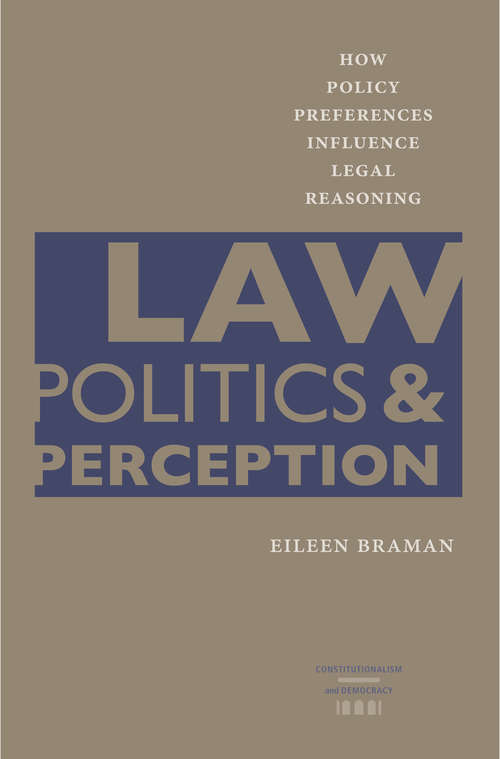Law, Politics, and Perception: How Policy Preferences Influence Legal Reasoning (Constitutionalism and Democracy)
By:
Sign Up Now!
Already a Member? Log In
You must be logged into Bookshare to access this title.
Learn about membership options,
or view our freely available titles.
- Synopsis
- Are judges' decisions more likely to be based on personal inclinations or legal authority? The answer, Eileen Braman argues, is both. Law, Politics, and Perception brings cognitive psychology to bear on the question of the relative importance of norms of legal reasoning versus decision markers' policy preferences in legal decision-making. While Braman acknowledges that decision makers' attitudes--or, more precisely, their preference for policy outcomes--can play a significant role in judicial decisions, she also believes that decision-makers' belief that they must abide by accepted rules of legal analysis significantly limits the role of preferences in their judgements. To reconcile these competing factors, Braman posits that judges engage in "motivated reasoning," a biased process in which decision-makers are unconsciously predisposed to find legal authority that is consistent with their own preferences more convincing than those that go against them. But Braman also provides evidence that the scope of motivated reasoning is limited. Objective case facts and accepted norms of legal reasoning can often inhibit decision makers' ability to reach conclusions consistent with their preferences.
- Copyright:
- 2009
Book Details
- Book Quality:
- Publisher Quality
- Book Size:
- 256 Pages
- ISBN-13:
- 9780813928371
- Publisher:
- University of Virginia Press
- Date of Addition:
- 10/19/20
- Copyrighted By:
- the Rector and Visitors of the University of Virginia
- Adult content:
- No
- Language:
- English
- Has Image Descriptions:
- No
- Categories:
- History, Nonfiction, Philosophy, Politics and Government
- Submitted By:
- Bookshare Staff
- Usage Restrictions:
- This is a copyrighted book.
Reviews
Other Books
- by Eileen Braman
- in History
- in Nonfiction
- in Philosophy
- in Politics and Government
